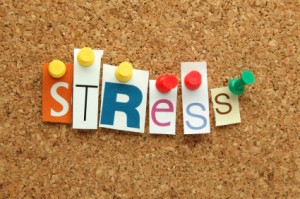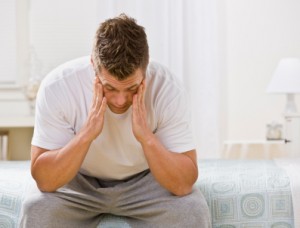Depression strikes both genders but it does not do so equally as one would expect. Depression occurs in men at a rate less frequent than women but it still affects a huge number of men each year. Depression strikes over six million men in the U.S. alone every year.
Why It’s Important to Recognize the Symptoms
Since depression was previously thought to be a women’s illness, many of the signs and symptoms of depression one usually thinks of are based on how women experience this disorder. The result is that sometimes people have trouble recognizing the symptoms in men because they aren’t considered to be symptoms commonly associated with depression. Since a lot of people share this incorrect standard belief, depression in many men remains unrecognized and untreated.
How Men and Women Experience Depression Differently
Some symptoms of clinical depression experienced by both men and women include a loss of interest in enjoyable activities, sleep disturbances, and changes in appetite. But while women frequently report feelings of sadness and loss of self-esteem, men may express depression in a different way. Men often experience depression through anger and other less recognizable symptoms.
The Top 12 Symptoms of Depression in Men
The most common signs of male depression include:
Anger and/or Hostility
For some men, expressing anger is more culturally acceptable than admitting to feelings of sadness or low self worth. Sudden flare-ups of anger, or hostile responses to mild irritants, can indicate depression. Hostility can also be a response to pressure from worried family members or friends, who may try to persuade the depressed individual to see a doctor or take part in family activities or social gatherings.
Fatigue
Depression often manifests itself as fatigue – chronic tiredness that won’t disappear even after resting. Depressed people may experience a general slowing down of thought processes and movement, accompanied by a feeling of tiredness, both psychologically and physically. Since men with depression tend to express it through physical complaints rather than emotional states such as sadness, fatigue ranks high on the list of depression symptoms in men.
Sleep disturbances
One major sign of depression is a change in sleep cycles. A depressed individual may experience changes in sleep schedules, getting up much earlier or later than usual. He may sleep much more, or have trouble getting to sleep at night. Sleep may be disturbed, with frequent awakenings. Difficulty sleeping can also add to the fatigue that characterizes depression for many people.
Difficulty concentrating
The same slowdown in psychomotor functioning that leads to feelings of fatigue also causes problems with concentration and focusing. Men with depression may have difficulty finishing tasks, paying attention to conversations, reading or starting new projects. Along with difficulty concentrating, focusing can be derailed by intrusive, negative thoughts that interfere with directing attention to the task at hand.
Loss of interest in sex
Depression can affect sexual desire in men. It can also be a cause of erectile rectile dysfunction. Although numerous health conditions can cause a loss of libido, a sudden lack of interest in sex, especially when it occurs along with other symptoms such as fatigue or anger, can indicate depression.
A loss of interest in sex may be a part of a cycle of symptoms related to social withdrawal and lack of interest in other activities previously enjoyed. Sexual problems also contribute to feelings of worthlessness and low self esteem and add to the stress that characterizes depression in many men.
Backache
Chronic pain, particularly in the back, shoulders or neck muscles, can signal depression. Although the link between neck and back pain and depression is not clearly known, research from a 2004 study by the University of Alberta suggests a strong link between backache and depression.
The physical discomfort of back or other muscle pain adds to the overall withdrawal and irritability characterized by depression, since depressed people may feel pain more intensely. For men, physical pain may be viewed as more acceptable than emotional symptoms of depression.
Stomach and digestive disturbances
Along with back and other muscle aches, depression in men may be characterized by stomach pain and other digestive symptoms. Depression can manifest in irritable bowel syndrome, chronic indigestion or acid reflux.
Changes in appetite can also signal depression. Loss of appetite, changes in eating patterns, or eating more than usual may be symptoms of feeling depressed. Problems with appetite and digestion can also cause imbalances in essential nutrients, which also contribute to depression.
 Feelings of Stress
Feelings of Stress
For men, depression can be characterized by feelings of stress rather than sadness. Feeling overwhelmed and unable to keep up with daily tasks may indicate depression. Related symptoms such as difficulty concentrating and focusing can contribute to these feelings, which may be easier for men to discuss than sadness. The cause of stress can vary such as work problems, financial issues, etc.
Anxiety
Anxiety can also signal depression, and some researchers note that for men, it may be easier to talk about feelings of anxiety and stress than other symptoms. Depression and anxiety disorders are often linked, so feelings of anxiety may be magnified during episodes of depression. Excessive worrying, obsessive thoughts and a racing heartbeat can be symptoms of anxiety, which adds to feelings of stress.
Withdrawal from family or friends
Depressed individuals may have no interest in family, friends and activities they previously enjoyed. They may withdraw from contact with people and find even simple conversations to be overwhelmingly difficult. Fatigue and the general slowing of cognitive and motor functions during depression can make it unpleasant and over stressful to interact with others.
The stress of dealing with others can trigger feelings of anger and hostility as well, especially if well-meaning family members express concern or urge the depressed individual to seek help.
Irritability
Irritability, as distinct from outright anger, is low-level irritation at the minor problems of daily life. Because depressed individuals feel overwhelmed, stressed and anxious, even previously insignificant issues become magnified, creating defensiveness and irritability. This aspect of depression can contribute to further withdrawal from family, friends and activities and create tension in relationships.
Problems With Decision-Making
One result of depression is that it can cause a “brain fog” that makes concentration difficult and focusing hard. This can also cause problems with decision-making and other tasks involving initiative and judgment. Depressed individuals may have difficulty deciding what to do or how to start a task. They may make poor decisions, which leads to more stress and anxiety in a never-ending spiral farther into depression.
The Effects of Untreated Depression in Men
Sometimes men tend to feel stigmatized by admitting to depression but left untreated there is a great risk of major or clinical depression symptoms becoming worse. The Center for Disease Control estimates that 75% to 80% of those who commit suicide are men and experts say that about 90% of those men have clinical depression or other mental disorder. Men who attempt suicide are more likely than women to succeed, too – most probably because they generally choose more lethal methods such as guns.
Some men with untreated depression develop problems with alcohol or abuse drugs in an attempt to self medicate.
In addition, many experts believe that if depression is untreated it can produce harmful affects in the body. For example, the Journal of the American Medical Association reports that there is an indirect link between depression and heart disease. It is thought that depression is more likely to cause lack of exercise and lack of healthy eating and proper diet which is common among depressed men.
 Treatment for Depression in Men
Treatment for Depression in Men
The two most common depression treatments are antidepressants and therapy.
The antidepressant medications most often prescribed are selected serotonin reuptake inhibitors. Although there is some controversy among experts over the effectiveness of antidepressants and some people do experience antidepressant side effects, it is reported that between 30-45% of all people taking antidepressants are helped.
Therapy is the other most commonly prescribed treatment to provide help for depression. In therapy – whether a one person or support group setting – a psychotherapist will provide information that helps with the management of this disorder as well as to help determine the underlying cause of the depressive state.
While some men find success with depression home remedies or vitamins and supplements, for some men particularly those with major depression or a severe form of bipolar disorder or those who are not helped by home remedies – finding help from a professional is of critical importance. It is best to request an appointment from your doctor and seek medical professional help. This ensures that a proper diagnosis and treatment of depression can be made and a physical cause or illness is ruled out.
Understanding the depression symptoms in men is important because the risks of untreated depression are so great. Help for depression is available. There is treatment that can help you or a loved one feel better. For most men, recognizing the symptoms of depression is the first step in getting help.
Related Posts
Depression in Men – The 10 Most Surprising Facts
Top 10 Signs of Depression in Men
Anger and Depression – The 5 Biggest Myths
Natural Remedies for Depression



